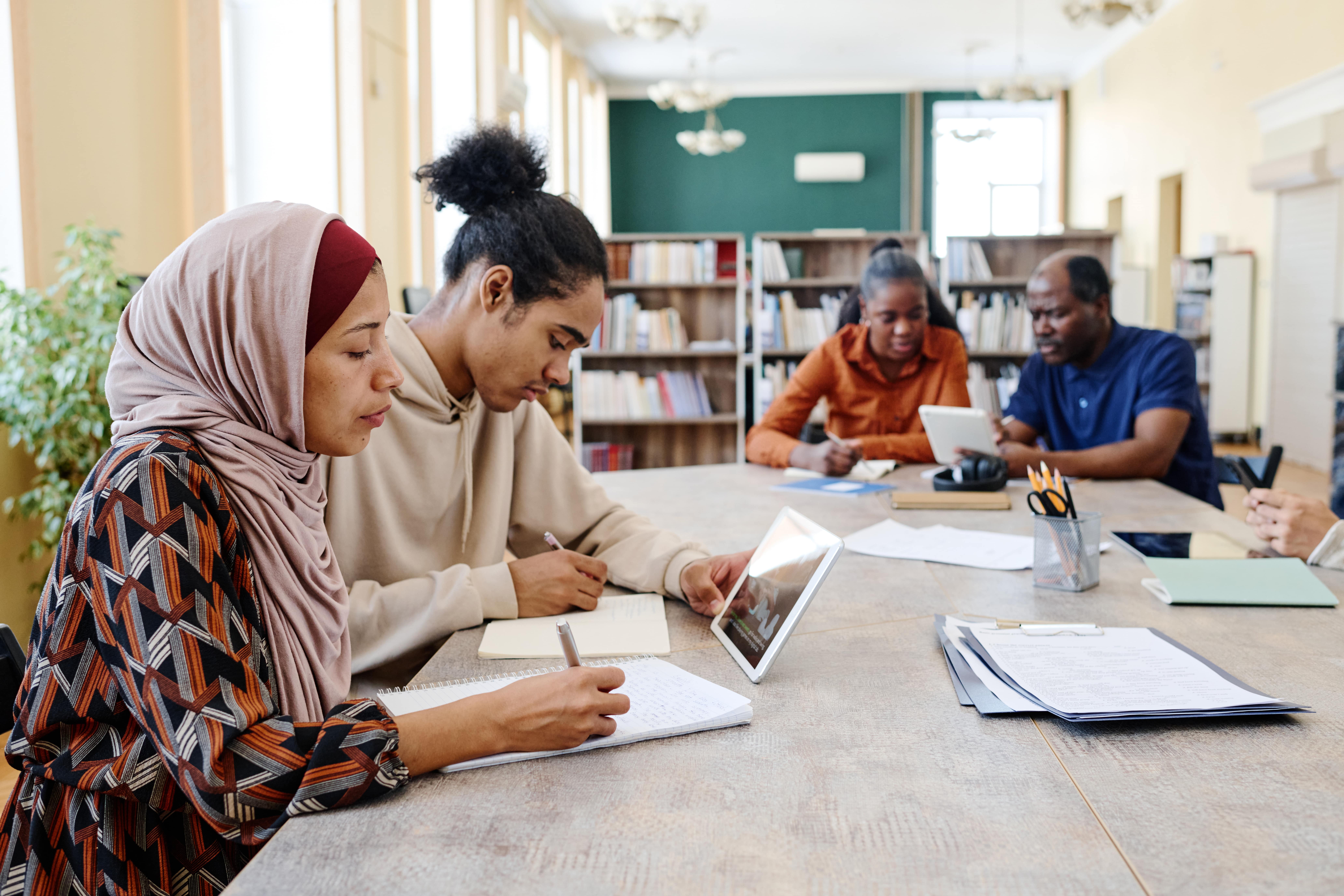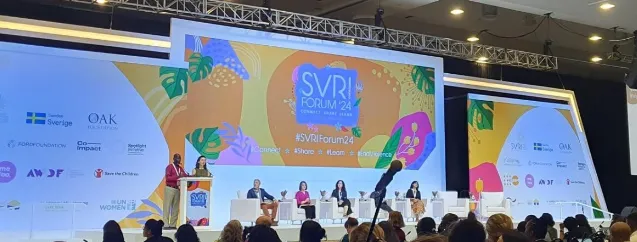More questions: reflecting on what the Humanitarian Innovation Fund grant means for technical support services

Nick Dickinson &; Tim Kent
Receiving a HIF grant represents a huge step forward for our team. We are excited to have a chance to develop what we hope will be a widely used service for the sector, and to share the experience with all who are involved in humanitarian innovation and the wider community.
Looking back… a quick summary of how we got here
In 2005, OCHA’s Humanitarian Response Review reported that emergency responders in the front line often suffer from lack of access to quality, timely technical support services (TSS). Addressing this gap was a challenge taken up by the Global WASH Cluster, who carried out a key study into the area, and laid the groundwork for taking a collaborative approach to technical support services.
The initiative for KnowledgePoint itself came from several sources; in part from this cluster work, but also from individuals involved in technical support who were developing similar ideas independently. After a series of exploratory meetings and sharing of ideas starting in 2008, the current partnership began during the Know How Now conference. However, true to the character of the innovation, KnowledgePoint itself took shape through online meetings, emails, and a shared social media site... and consolidated through occasional face to face meetings.
The challenge of providing high quality and timely TSS is complex. We have learned a lot in our partnership but at some point the crux of the problem was recognised as formalisation and collaboration. Each TSS provider has another specialisation and way of working. This presents both a challenge and opportunity, which can be addressed by creating compatible processes between organisations and supported by a common information and moderation system. The goal is not to replace existing services but rather to tie them together and ensure timely high quality responses for people and by people.
WaterAid, RedR, EngineerAid, Practical Action and IRC International Water and Sanitation Centre (not be confused with the International Rescue Committee) signed a Memorandum of Understanding to acknowledge collective support for the venture. Perhaps the greatest innovation KnowledgePoint brings is a partnership of both humanitarian and development organisations with a common purpose to improve livelihoods through resilient and sustainable solutions.
Like so many innovations, KnowledgePoint is a product of its time. The initiative builds on wider trends, including improved access to ICT, a desire to improve dialogue between stakeholders, increasing technical vulnerability, and the overabundance of information and associated need for expert guidance.
Looking forwards… some of our aims
The current phase of the project explores how we might create a collaborative platform for technical support services, which will begin to take shape during the next five months, but here is a quick rundown of the kind of outcome we’re hoping for.
Our aim is for KnowledgePoint to be widely used by humanitarian workers, local partners, and at-risk communities who need timely and high quality information on any technical issues. Behind the scenes, we hope to be a common, even single, destination for technical support. To achieve this, we also aim to link with an increasing number of technical service providers so that technical resource centres can collaborate rather than offer duplicate services. People will continue to access these services as they do now but gain access to much broader networks of knowledgeable practitioners.
Practitioners often state the need for access to practical information, such as how-to guides. Often such information does exist, but a practitioner will not have time to invest in searching. Or perhaps it requires an expert to know which guide is appropriate, or a new situation requires new solutions to be developed quickly… With KnowledgePoint, the pooled resources of support teams can help a range of knowledge resources be used more widely, and new ones can be made available quickly. Furthermore, usage could be tracked to help provide data on what are the real needs on the ground.
Support providers themselves will find it easier to post questions to a community of peers – for example, an expert may often provide answers for a problem in one context, but what is best practice when that context changes? By tracking each individual question, local offices, who frequently both receive and ask technical questions, will find it easier to refer a question to other service providers – and follow the progress of the enquiry from initial question to delivery of an answer. Automatic responses will be explored to help people know the timeframe they can expect for their answer and even suggest existing documents that will be useful.
To provide assurance that the process is working and to add value, the platform will also generate data on what questions people are asking, who are the groups to benefit, what are the key issues for those who are working for or receiving assistance from your organisation.
Back to the present…
But all that is still to come. Writing the proposal for the HIF grant has helped us to review the task in hand, as well as giving us an opportunity to reflect on our approach to innovation. Alongside updates on our project progress, lessons learned from the innovation process will be the subject of future posts.
The current phase of the project is the invention of a process, and many challenges will be faced. A few of these are listed here:
- Decision making: as a consortium we need to work on schedule and make the tough decisions that are required to make innovation succeed. We are being lead by a single project manager, Tim Kent, who will ensure that innovation process goes on in a collaborative manner but does not get bogged down by committee.
- Stakeholder participation: designing a process and supporting software development that takes into account the huge variety of people who will be involved in KnowledgePoint … this is vital but how do we take into account as many opinions as possible without being overwhelmed by them?
- Widely used: KnowledgePoint is in a fantastic position of having an existing stream of enquiries to work from – so we know the demand is there. But even though our technical support experts say they want to see the functional improvements KnowledgePoint will offer, the system still has to make life easier for them on a day-to-day basis. Many failed IT projects testify to this being no easy task. Design for usability is priority number one – but how can current processes be catered for whilst implementing real change? How can we ensure that people stay central and the software serves them and not the other way around?
We believe that KnowledgePoint is exciting in many ways, and one of these is the challenge of innovating in the context of a dispersed consortium, creating an innovative solution led by a dispersed team of (often highly mobile) enthusiasts.
And so we look forward to sharing our experiences and once again thank the HIF team for giving us this opportunity to innovate for the humanitarian sector.
Stay updated
Sign up for our newsletter to receive regular updates on resources, news, and insights like this. Don’t miss out on important information that can help you stay informed and engaged.
Related articles



Explore Elrha
Learn more about our mission, the organisations we support, and the resources we provide to drive research and innovation in humanitarian response.